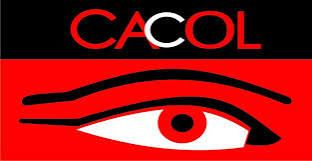Centre For
OpenLife Nigeria reports that the Centre for Anti-Corruption and Open Leadership (CACOL) at the weekend commended the Senate of the Federal Republic of Nigeria for passing the Bill for an act to amend the Revenue Mobilization, Allocation and Fiscal Commission (RMAFC) Act just as it asked President Bola Ahmed Tinubu to sign the Bill into law as recently passed by the Senate.
The Centre explained the significance of the bill, which granted RMAFC enforcement powers in the monitoring of accruals to and disbursement of revenue from the Federation Account and bring the Act in conformity with the Constitution of the Federal Republic of Nigeria.
In a statement signed by the Chairman of the Centre, Comrade Debo Adeniran, he said “the bill as passed by the National Assembly seeks to repeal the RMAFC Act, 2004, and replace it with the Revenue Mobilization, Allocation, and Fiscal Commission Bill, 2024 as the Act, last updated over two decades ago, no longer reflects the nation’s evolving economic realities.”
It would be recalled that the Senate on Thursday last week passed the bill that seeks to empower the Revenue Mobilisation, Allocation, and Fiscal Commission (RMAFC) to monitor accruals to, and disbursements from, the Federation Account.
The bill was passed following its consideration and adoption of the report by the Senate Committees on National Planning and Economic Affairs, Finance, and Appropriations during plenary.
The proposed legislation, according to the Chairman of Senate Joint Committees on National Planning and Economic Affairs, Finance and Appropriations, Senator Yahaya Abdullahi, revised the composition and operational framework of the Commission to ensure that federal, state, and local governments receive the constitutionally mandated resources necessary to address governance and development challenges.
According to him, the primary objective of the bill which prescribes a revamped structure and operational method for the Commission, is to reinforce the mandate and powers of the RMAFC as the constitutionally
recognized body responsible for monitoring revenue generation and ensuring its equitable disbursement among the three tiers of government.
As one of 14 executive bodies recognized by the 1999 Constitution, CACOL said RMAFC “is one of the most poorly funded agencies compared to other sister constitutional bodies like Independent National Electoral Commission, National Population Commission, National Assembly and others that are heavily funded from the national purse.”
Consistent with the 1999 Constitution, the statement noted that RMAFC was established to monitor the accruals of federally generated revenues to the Federation Account and disburse same to the three tiers of government. With these roles, according to the coalition, RMAFC has enormously contributed to the democratization process, thus encouraging good governance, transparency and accountability and even development in the country.
The anti-graft organization thus, said “the bill, when eventually signed into law, would reposition the commission by giving it the needed impetus to perform optimally with the removal of financial, legal and regulatory encumbrances that hitherto made it a toothless bulldog that can only bark but not bite.”
It added: “While it is apt to note that the president does not waste time in signing bills into law provided they serve the peoples’ best interest as demonstrated in his first few weeks of assumption of power, we are quite optimistic that the President would assent to the bill as soon as it gets to his table.”






